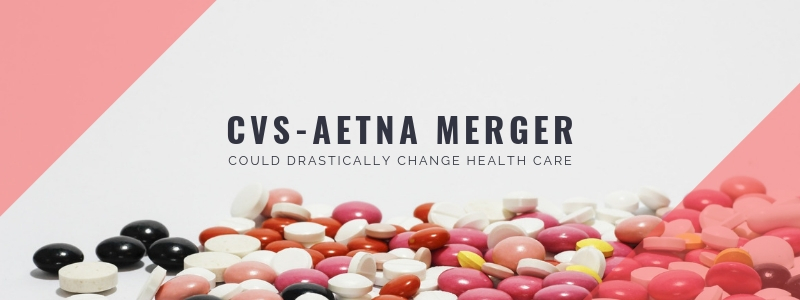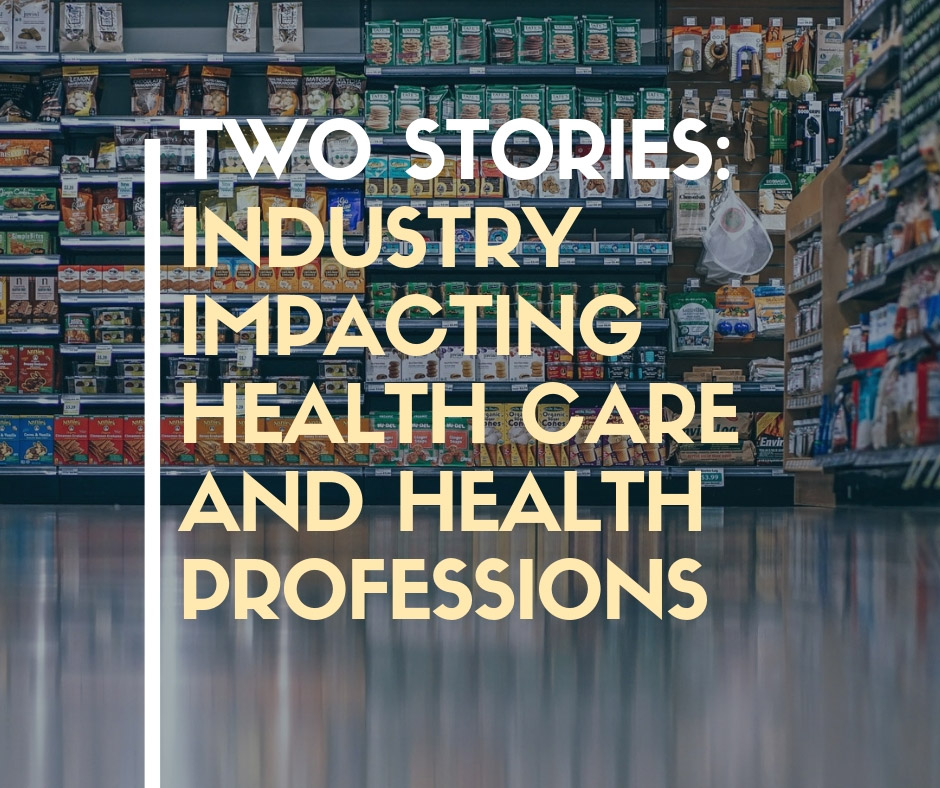$3.2 trillion. 17.8% of the United States Gross Domestic Product. The inflating cost of health care is, to those in health care and especially those who pay for it, a burning platform. Something's got to give.
But to others—to rapid-growth tech companies like the three As: Amazon, Apple and Alphabet? $3.2 trillion is the scale of the opportunity. 17.8% of GDP is a massive, untapped market.
The cost of care is, increasingly, both a threat and an opportunity for large corporations—in both their long- and short-term strategic planning. Increasing costs will rapidly drive industry impact on health care from all sides. Change will come from both opportunity and necessity.
Employer-led initiatives will aim to reduce the burden of paying for employee's costly health coverage. Growth-motivated investments will seek to tap into the massive revenue potential of health care. Two major stories caught our attention, recently, from both angles.
Industry impact on health care, in the news.
1. Amazon artificial intelligence will analyze patient records.
"Big Tech Expands Footprint in Health" reads a late November headline in the Wall Street Journal. Amazon announced a new product under its Amazon Web Services (AWS) umbrella, aimed at using artificial intelligence—more accurately, a deep learning neural network—to analyze patient records and find opportunities to cut costs and improve patient outcomes.
The Health Professions Network September conference focused on artificial intelligence and its potential impact on health care and health professions. HPN members can find presentations and more resources on machine learning and its applications in health care in our members-only area.
The crucial innovation, says Amazon, is that their system can overcome the challenges of "misspellings, abbreviations and doctors' idiosyncratic descriptions," write Melanie Evans and Laura Stevens for the WSJ. "We're able to completely, automatically look inside medical language and identify patient details... with incredibly high accuracy," said Matt Wood, general manager of artificial intelligence at AWS.
The impact isn't years away. This announcement signals a ready-for-market application of artificial intelligence in health care, one that could have an immediate impact on health professions.
Amazon partnered with the Fred Hutchinson Cancer Research Center to test and train its machine learner—to ultimately help identify patients eligible for studies of experimental drugs. "The center has employed about 60 people to scan and pull essential data from records on about 500,000 cancer patients," reads the article. "As automation does more of the work, some employees could do other tasks."
The potential industry impact on health care from "Big Tech" should not be underestimated—nor should how quickly potentially disruptive developments can reach the market, especially considering the general secrecy with which these companies approach their competitive innovations.

2. CVS-Aetna merger could drastically change health care.
"CVS plans changes to stores after Aetna deal" reads a late November headline from USA Today."CVS Health plans to reduce the amount of store space devoted to retail and shift more to health care," leads the article. CEO Larry Merlo envisions using the extensive footprint of CVS's many pharmacy locations to become "more of a health care destination" for consumers—especially for those insured by Aetna.
CVS has laid groundwork for the shift by investing in MinuteClinic locations in "about 1 in 9 of its stores" reads the article. But with the merger comes Aetna's payer mindset, and a broader perspective on health care at large—including population health considerations. Merlo is planning "concept stores" that could "partner broadly with others in the community around elements that indirectly impact health care," he said to USA Today, such as transportation to checkups and "access to food services."
The deal could also have a huge impact on the cost of care—creating a new norm of how health care companies can cut costs for consumers. In this case, the industry impact on health care will greatly simplify and shorten the pharmaceutical supply chain while eliminating inefficiencies and complex price negotiations. Kathleen Iacocca, PhD of the Villanova University School of Business wrote an opinion piece for STAT this week, arguing that this kind of consolidation "makes perfect sense" considering mounting "outside pressures from the public and lawmakers," and "the overly complex drug supply chain."
If the CVS-Aetna deal goes through—the likelihood of which was thrown into question by US District Judge Richard Leon on Tuesday—more pharmacy-insurance mergers and acquisitions would inevitably follow, and fast. Perhaps more quickly than any one imagined, a MinuteClinic-like retail health care environment could be the primary care environment for a majority of US individuals.
Industry impact on health care focuses HPN's next conference. Join us there.
Obviously, these developments would drastically change the nature of non-physician health professions—what skills and education they need, what roles they play, where they work and how they collaborate with other health care providers. Industry impact on health care will be significant, and change will happen fast. HPN seeks to stay ahead of the curve on behalf of our members and our members' members.
Join the Health Professions Network at our April 3-5 conference in Cincinnati to make in-roads on these industry developments, and learn how these massive trends may affect your profession—in the immediate future. We can guarantee you’ll leave with practical takeaways to guide your organization’s strategy and make a greater impact for the professionals you support.
Register, today for our Spring conference »
Don't forget, as a Health Professions Network member, you'll receive an immediate discount on registration fees for our Spring conference. Learn more about how membership in the Health Professions Network can benefit you and your organization, here.
Membership in the Health Professions Network will not only keep you on top of trends affecting health professions, like industry impact on health care. Membership will also connect you to a supportive, caring network of professionals involved in associations, accrediting agencies, certification bodies, educational institutions, workforce analysis, and more—all focused on supporting allied health professionals. Membership will also ensure that your profession's voice is represented in the important care discussions to come.
Join the Health Professions Network, now »
The Health Professions Network (HPN) is a nationwide collaborative group of organizations representing leading health professions associations, accrediting agencies, and educational institutions, as well as federal and state workforce analysts and licensing and certification bodies.

